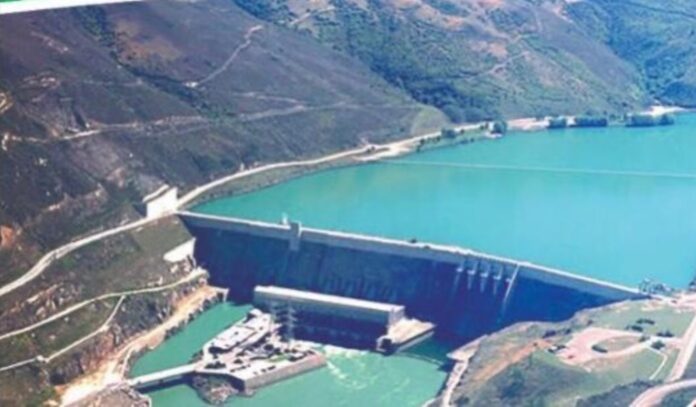Amid mounting protests by thousands of Diamer-Bhasha Dam affectees over delayed compensation and unfulfilled resettlement promises, the federal government has pledged swift action following an emergency meeting on Monday.
The protests, organized under the banner of Haqooq Do, Dam Banao Tehreek (Give Rights, Build the Dam Movement), have seen significant participation from affected residents, youth activists, religious leaders, legal experts, and political representatives. In solidarity, traders in Chilas, the district headquarters of Diamer, shut down businesses, bringing commercial activity to a halt.
In response to the escalating demonstrations, Federal Minister for Kashmir Affairs & Gilgit-Baltistan and SAFRON, Engr. Amir Muqam, chaired a high-level meeting to address concerns regarding the implementation of WAPDA’s Confidence Building Measures (CBM) projects for displaced communities in Diamer.
The meeting, attended by key officials including Gilgit-Baltistan Chief Minister Haji Gulbar Khan (via Zoom), WAPDA Chairman Gen (Retd) Sajjad Ghani, Chief Secretary GB Abrar Ahmed Mirza, Federal Secretary of Kashmir Affairs & GB Zafar Hasan, and Additional Secretary Kamran Rehman Khan, focused on resolving longstanding grievances related to land compensation, water supply, sanitation, and the Household Resettlement Package (Chulha Package).
Engr. Muqam announced the formation of a high-level committee to visit Gilgit-Baltistan and oversee the resolution of grievances. He also committed to personally visiting the region, emphasising that the federal government prioritises the development and welfare of Gilgit-Baltistan’s residents.
WAPDA officials assured that tenders for the water supply project would be issued within two weeks, while a broader strategy was formulated to ensure the timely completion of various development initiatives.
A day before the emergency meeting, Chilas town witnessed a massive demonstration, where speakers highlighted the community’s sacrifices for the Diamer-Bhasha Dam and the government’s failure to provide promised compensation and employment opportunities.
“This is a peaceful rally for the rights of those who gave their land for the dam,” said youth leader Shabir Qureshi. “We are not against the state, but we demand justice for our people who made sacrifices in the national interest.”
Key demands put forth by the protesters include:
- Immediate release of the Household Resettlement Package (Chulha Package).
- Full compensation for lands acquired for the dam.
- Prioritisation of local employment instead of hiring from other cities.
During the protest, a 31-point Charter of Demands was presented to authorities, with participants vowing to continue their sit-in at Bab-e-Chilas until their demands are met. Negotiations between district officials and protest leaders remained inconclusive.
The Diamer-Bhasha Dam, a strategic hydroelectric project aimed at addressing Pakistan’s water and energy needs, has faced significant hurdles, particularly in compensation and resettlement. The dam, first conceptualised in 1980, saw land acquisition begin in the early 2000s, but delays in compensation payments and rehabilitation measures have fueled resentment among local communities.
While the government and WAPDA maintain that significant funds have been allocated for the project’s development, affectees argue that much of the promised financial and infrastructural support remains undelivered. The latest protests underscore long-standing frustrations and highlight the urgency for a transparent and expedited resolution.




